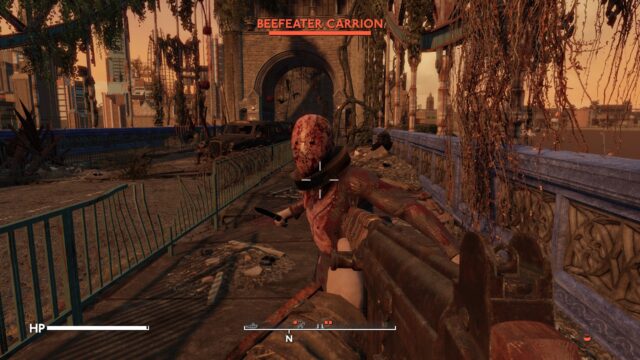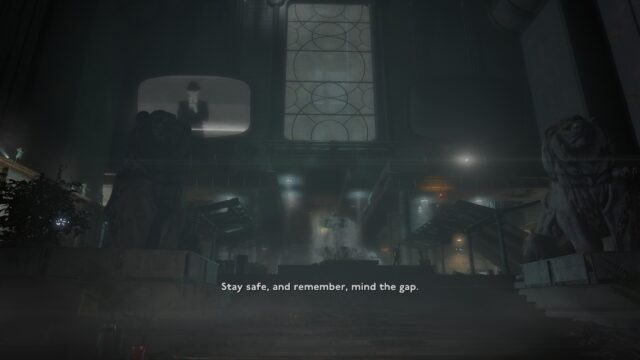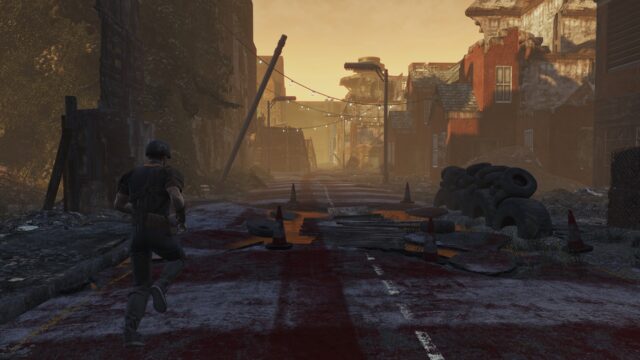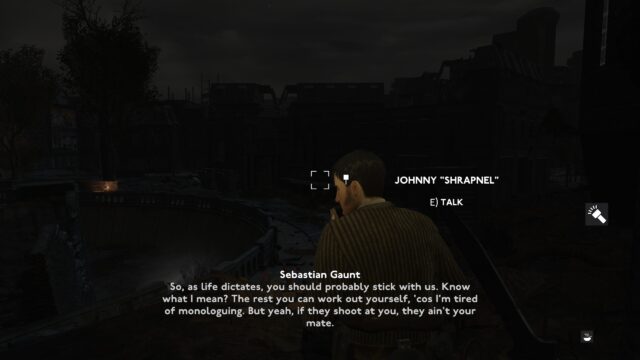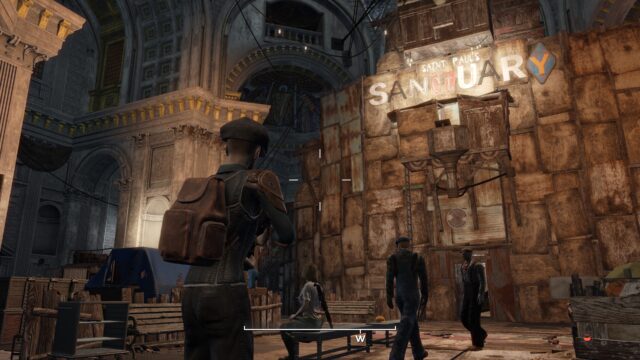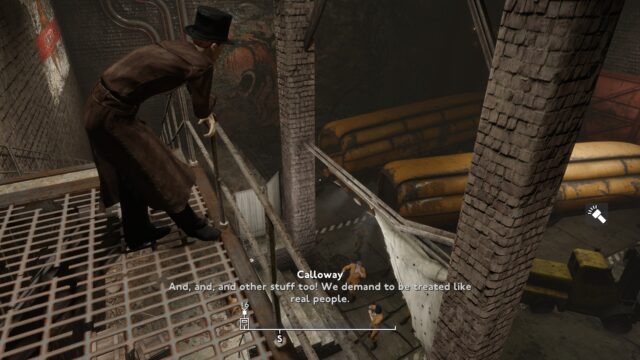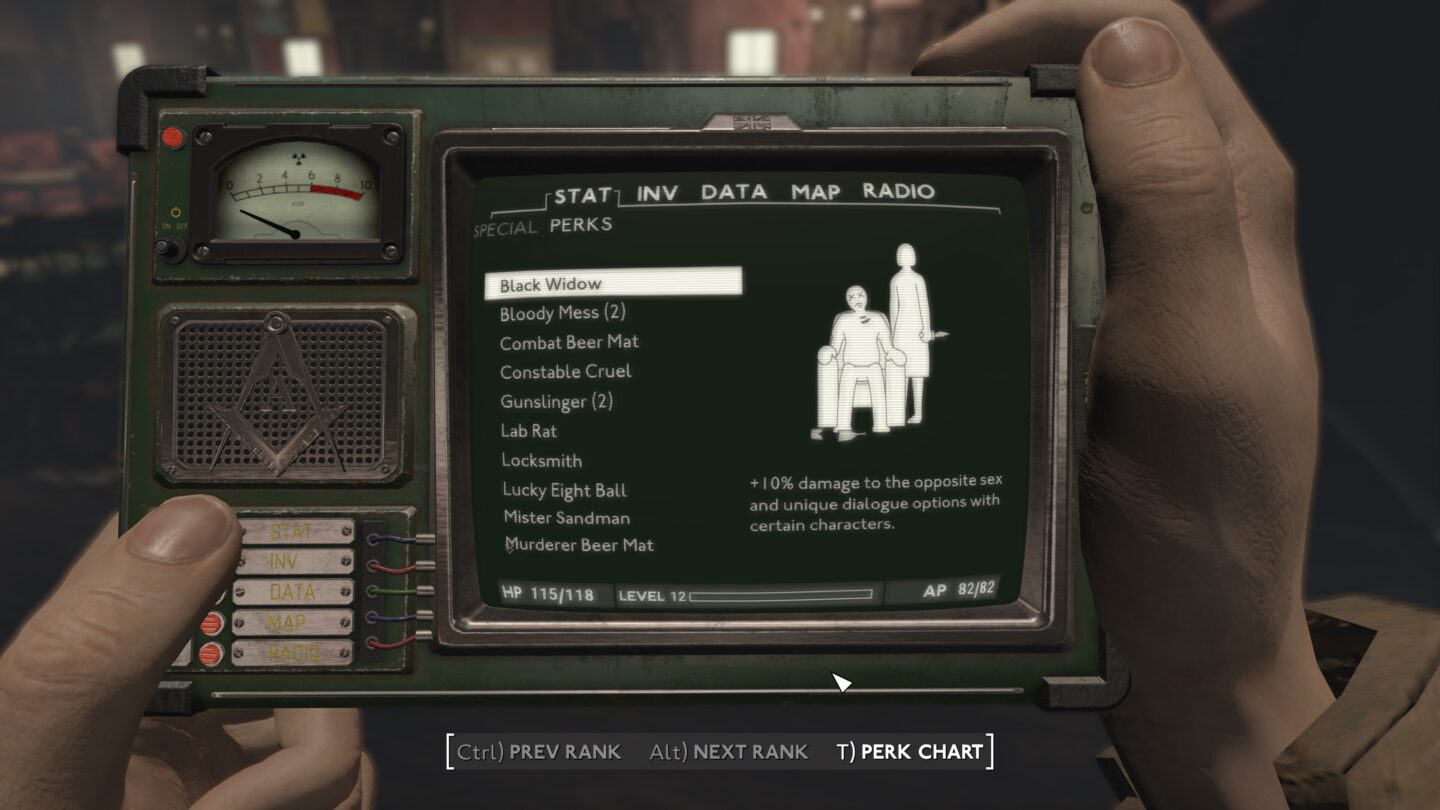
Team FOLON
The UK equivalent of a Pip-Boy 3000, which is nice to see after so many hours with the wrist-mounted one.
Team FOLON
It’s not the standard set of baddies you’re used to.
Team FOLON
It’s not the standard set of baddies you’re used to.
Team FOLON
Are there bog-standard British-isms? Yes, but not too many, and fairly spaced out.
Team FOLON
‘Ello, what’s all this, then?
Fallout: London takes place 160 years after the global nuclear war, 40 years before Fallout 3, and in a part of the world that is both remote and didn’t really have official Fallout lore. That means a lot of the typical Fallout fare—Deathclaws, Super Mutants, the Pip-Boy 3000—is left out.
Or, rather, replaced with scores of new enemies, lore, companions, factions, and even some mechanics picked up from the modding scene (ladders!). It’s a kick to see the across-the-pond variants of wasteland stuff: tinned beans, medieval weapons, the Atta-Boy personal computer. There is at least one dog, a bulldog, and his name is Churchill.
As for the story, stop me if you’ve heard this one before: You, newly awakened from an underground chamber (not a Vault, though), enter a ruined London, one riven by factions with deep disagreements about how to move things forward. You’ll take up quests, pick sides, befriend or blast people, and do a lot of peeking into abandoned buildings, hoping to find that last screw you need for a shotgun modification.
A streetscape from post-bomb London. Not exactly Piccadilly Circus and red buses (though you’ll see those later!).
Team FOLON
It gets very dark in Fallout: London, moreso than the base game. And it gets self-referential.
Team FOLON
The interiors in Fallout: London are particularly impressive, having a lived-in, strung-together feel.
Team FOLON
There were labor disputes before the bomb, and after, and forever across humanity.
Team FOLON
London falling
When you first start Fallout: London, you’ll see a London that looks like, honestly, crap. Whatever London did to anger the nuke-having powers of the world, it got them good and mad, and parts of the city are very busted. The city’s disposition to underground spaces has done it well, though, and you can often find yesteryear’s glory in a Tube tunnel, a bunker, or a basement.
As you move on, you’ll get the surge of seeing a part of London you remember, either from a visit or from media, and how it looks with a bit of char to it. The post-war inhabitants have also made their own spaces inside the ruins, some more sophisticated and welcoming than others. Everywhere you look, you can see that familiar Fallout aesthetic—1950s atomic-minded culture persisting until its downfall—shifted into Greenwich Mean Time.



